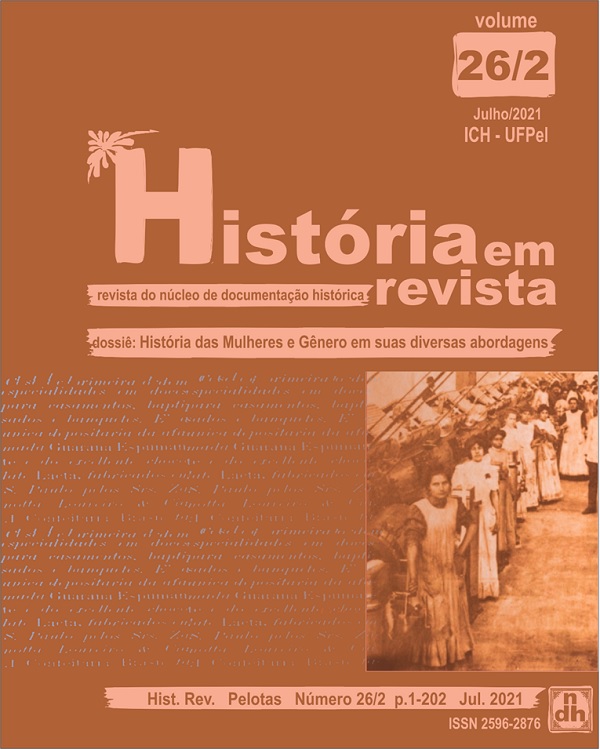"Ela diz que os homens é que são escravizados: Esther Vilar e as origens do antifeminismo como 'guerra cultural'".
Resumo
Resumo: O presente artigo analisa, a partir dos livros O Homem Domado (1972) e O Sexo Polígamo (1974) de autoria da argentina Esther Vilar, o nascedouro do novo antifeminismo cujo florescimento ocorreu simultaneamente à "Segundo Onda" do movimento feminista, na década de 1970. Em um primeiro momento, apresento como esse antifeminismo emerge nos anos 1970, delineando suas especificidades no Brasil; para, em seguida, revisitar e analisar a produção bibliográfica de Vilar, fazendo uso também de entrevistas das quais participou, com a finalidade de identificar o nascimento de uma nova gramática antifeminista responsável por renovar, ainda que de modo histriônico e caricatural, os ataques ao feminismo e às suas adeptas.
Palavras-chave: Antifeminismo. Esther Vilar. Colonialidade de Gênero.
Abstract: This article analyzes, based on the books The Manipulated Man (1972) and The Polygamous Sex (1974) by the Argentine Esther Vilar, the birthplace of the new antifeminism whose flourishing occurred simultaneously with the "Second Wave" of the feminist movement in the 1970s. First, I present how this anti-feminism emerges in the 1970s, outlining its specificities in Brazil; then, I revisit and analyze Vilar's bibliographic production, also making use of interviews in which she participated, with the purpose of identifying the birth of a new anti-feminist grammar responsible for renewing, even if in a histrionic and caricatural way, the attacks on feminism and its supporters.
Keywords: Antifeminism. Esther Vilar. Gender Coloniality.
“She says it's men who are enslaved: ESTHER VILAR AND THE ORIGINS OF ANTIFEMINISM AS A 'CULTURE WAR'”
Downloads
Autores que publicam nesta revista concordam com os seguintes termos:
1. Autores mantém os direitos autorais e concedem à revista o direito de primeira publicação, com o trabalho simultaneamente licenciado sob a Licença Creative Commons Attribution que permite o compartilhamento do trabalho com reconhecimento da autoria e publicação inicial nesta revista.
2. Autores têm autorização para assumir contratos adicionais separadamente, para distribuição não-exclusiva da versão do trabalho publicada nesta revista (ex.: publicar em repositório institucional ou como capítulo de livro), com reconhecimento de autoria e publicação inicial nesta revista.
3. Autores têm permissão e são estimulados a publicar e distribuir seu trabalho online (ex.: em repositórios institucionais ou na sua página pessoal) a qualquer ponto antes ou durante o processo editorial, já que isso pode gerar alterações produtivas, bem como aumentar o impacto e a citação do trabalho publicado.










